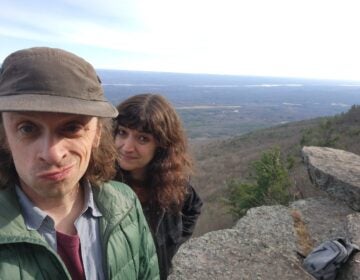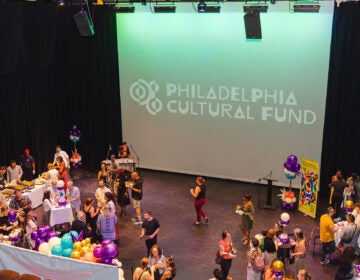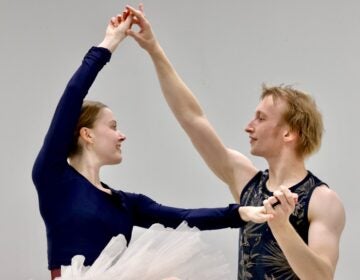Beloved carol has deep Philly roots
Ruth Worm volunteers as a greeter at the Church of the Holy Trinity in Rittenhouse Square, where she never fails to inform visitors that this church is the home of “O Little Town of Bethlehem.”
It’s a tune she loved well long before she became a member of the Episocopal parish.
“I lived a mile from a small town called Bethlehem, Md.,” Worm said. “It inspired me, gave me a lift, so every time I hear it, I sing!”
O little town fo Bethlehem
How still we see thee lie;
Above thy deep and dreamless sleep
The silent stars go by.
Those words were written in 1868 by the then-pastor of Holy Trinity, Phillips Brooks. A clergyman famous for his eulogy to Abraham Lincoln, he wrote the song as a way to express his journey to what is now the West Bank.
The five-verse poem intended for children in Sunday school, the fourth verse goes:
Where children pure and happyPray to the Blessed Child,Where misery cries out to TheeSon of the Undefiled,Where Charity stands watchingAnd Faith holds wide the door,The dark night wakes the glory heartsAnd Christmas comes once more.
The verse is now omitted from most hymnals published after 1940.
“The verse that is excised out is one that has interesting political and social ideas connected with it,” said John French, a professor of music at Urisnus College and choirmaster at the Church of the Holy Trinity. “It has some ramifications that might make people uncomfortable, especially in the mid-century, post-Depression times.”
The church organist in 1868, Louis Rednor, is said to have woken up in the middle of the night with the now-familiar melody in his head. That melody has since become known as “St. Louis.”
In England the lyrics are traditionally sung to a different tune, called “Forest Green.”
WHYY is your source for fact-based, in-depth journalism and information. As a nonprofit organization, we rely on financial support from readers like you. Please give today.




